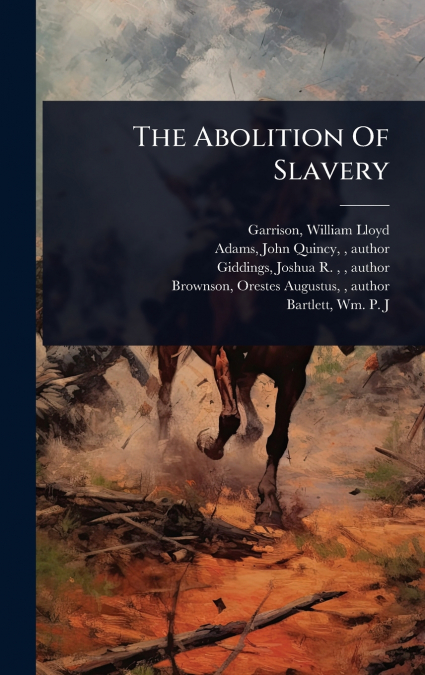
John Quincy 1767-1848 author... Adams / Joshua R. (Jo Giddings / William Lloyd 1805-1879 Garrison
'The Abolition Of Slavery: The Right Of The Government Under The War Power' presents arguments for the abolition of slavery during the American Civil War. Featuring contributions from prominent abolitionists and thinkers such as William Lloyd Garrison, John Quincy Adams, Joshua R. Giddings, and Orestes Augustus Brownson, this collection of essays explores the constitutional and moral justifications for the federal government to abolish slavery using its war powers. Originally published in 1862, this work reflects the urgent debates of the time, offering valuable insights into the legal and ethical dimensions of the conflict. It remains a significant historical document for understanding the abolitionist movement and the legal strategies employed to end slavery in the United States. This edition allows modern readers to engage with the original arguments and perspectives that shaped one of the most transformative periods in American history.This work has been selected by scholars as being culturally important, and is part of the knowledge base of civilization as we know it. This work was reproduced from the original artifact, and remains as true to the original work as possible. Therefore, you will see the original copyright references, library stamps (as most of these works have been housed in our most important libraries around the world), and other notations in the work.This work is in the public domain in the United States of America, and possibly other nations. Within the United States, you may freely copy and distribute this work, as no entity (individual or corporate) has a copyright on the body of the work.As a reproduction of a historical artifact, this work may contain missing or blurred pages, poor pictures, errant marks, etc. Scholars believe, and we concur, that this work is important enough to be preserved, reproduced, and made generally available to the public. We appreciate your support of the preservation process, and thank you for being an important part of keeping this knowledge alive and relevant.